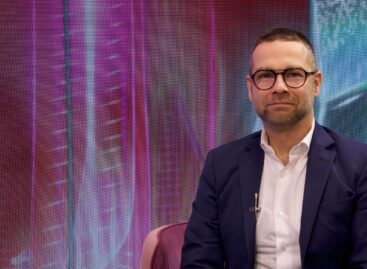Ibolya Görög: “Those who can behave have a positive attitude towards life”
Trade magazin’s Business Podcast, Future Talks with Szilvia Krizsó continues
Protocol expert Ibolya Görög was Szilvia Krizsó’s guest in the latest episode of the Future Talks podcast. This article features parts of the conversation, but you can watch the whole interview at futuretalks.hu.

Educating people

Ibolya Görög protocol expert
Ms Görög told that because of her profession she likes to watch people, but she never judges them. She tries to educate them, but in her own way. In her view it is more and more difficult to educate, because nowadays individual freedom dominates. Thanks to this, children can realise their potential, but they don’t know anymore that they need to say hello when they enter a room. The protocol expert also explained that communication is eroding due to today’s rapid pace of life. She mentioned an example: a person she knows chats so much with a friend online that they don’t really have anything to say when they meet in person. Ms Görög educates people with her Facebook posts too, by showing them examples how to behave online, and how to communicate with each other. People are really receptive to these posts. She believes that those who can behave have a positive attitude towards life. Unfortunately how people speak is getting ruder, and she really hates verbal aggression.
Protocol in diplomacy
Ibolya Görög worked in the Prime Minister’s Office between 1987 and 1999. She explained that the role of diplomatic protocol is to send messages. Since 1999 she has been following from the outside how protocol is developing in Hungary, and she is sad to see its deterioration. When in 2014 the prime minster declared that political correctness means nothing to him, it also meant that he won’t play by the rules of protocol either, as protocol is an integral part of political correctness. With this step he threw international standards into the bin. Obviously this led to citizens starting to think the same way.

„The rapid development of technology unfortunately brings about an erosion in communication.”
Corporate culture
When asked about corporate culture, she told that the situation very much depends on the given sector. For instance the world of media and IT has become really laid back, while a bank or an industrial firm can’t do this, because they might lose their credibility in the eyes of existing or prospective business partners. Szilvia Krizsó asked the protocol expert whether executives can define expectations in this field today, when Hungarian firms are struggling with a workforce shortage. Ms Görög thinks: if a good leader cares about their people and pays attention to them, employees will spread the word, and it will be easier for the given company to recruit new workers. A good manager makes an effort to keep workers, instead of hiring new ones all the time, and by this worsening the efficiency of their own work.
Related news
(HU) A DJ olyan, mint egy pszichológus
🎧 Hallgasd a cikket: Lejátszás Szünet Folytatás Leállítás Nyelv: Auto…
Read more >(HU) Török Dávid: Misszióm, hogy megváltoztassam az ingatlanosok imázsát
🎧 Hallgasd a cikket: Lejátszás Szünet Folytatás Leállítás Nyelv: Auto…
Read more >(HU) Várkonyi Gábor: Lehallgatnak az okosautóink?
🎧 Hallgasd a cikket: Lejátszás Szünet Folytatás Leállítás Nyelv: Auto…
Read more >Related news
(HU) Átadták a SIRHA Budapest 2026 Innovációs Termékverseny díjait
🎧 Hallgasd a cikket: Lejátszás Szünet Folytatás Leállítás Nyelv: Auto…
Read more >How does the forint exchange rate affect consumer prices?
🎧 Hallgasd a cikket: Lejátszás Szünet Folytatás Leállítás Nyelv: Auto…
Read more >HELL CITY has arrived, led by Michele Morrone
🎧 Hallgasd a cikket: Lejátszás Szünet Folytatás Leállítás Nyelv: Auto…
Read more >








